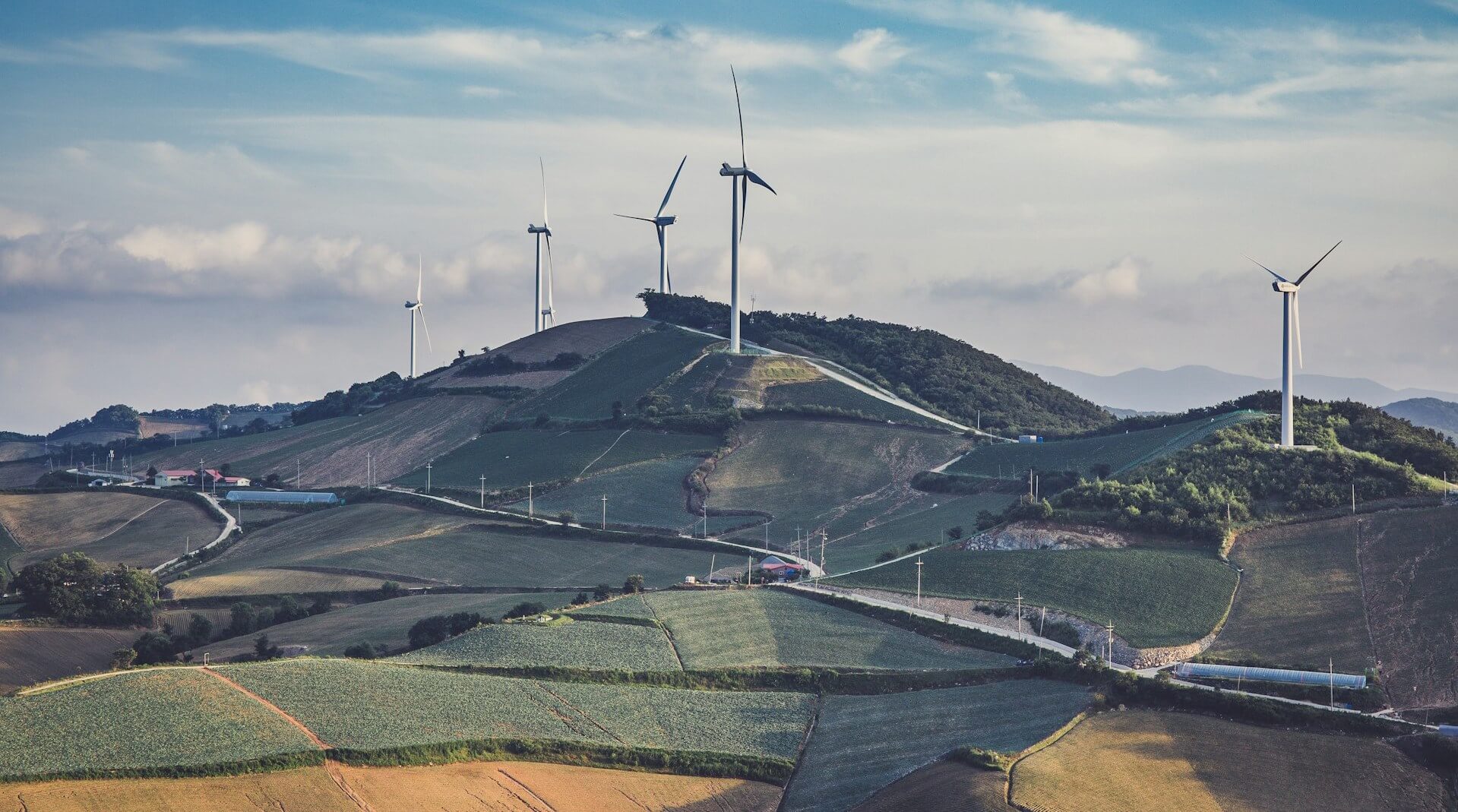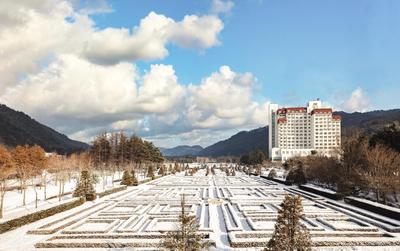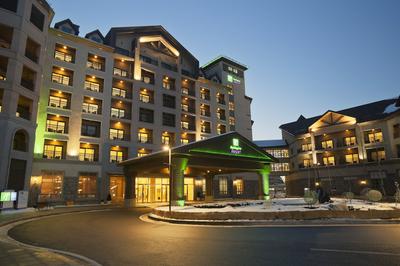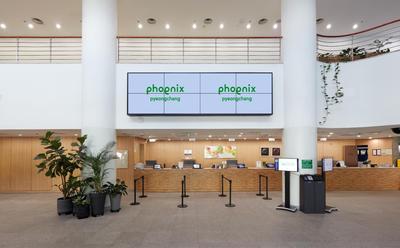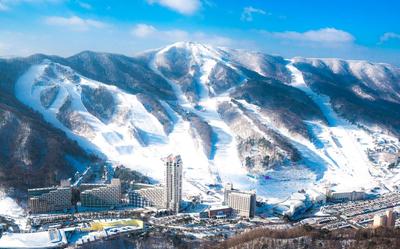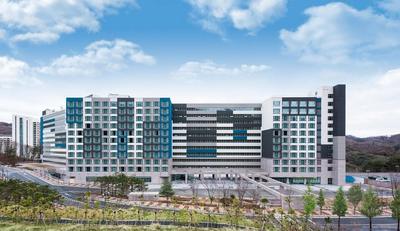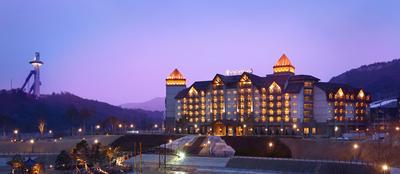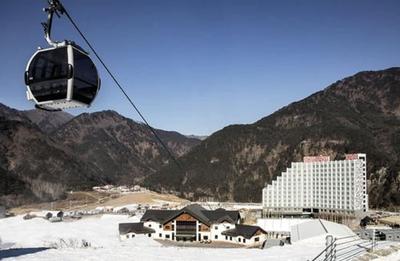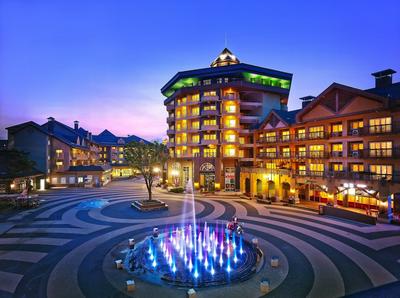When to visit Pyeongchang?
Pyeongchang, nestled in the beautiful mountains of South Korea, experiences a distinct four-season climate that attracts visitors year-round. Autumn (September to November) is particularly enchanting, as colorful foliage blankets the mountains, making it the perfect time for hiking and outdoor photography. Summer (June to August) offers pleasant weather for outdoor activities and festivals, although expect occasional rain, particularly in July. Winter (December to February) transforms Pyeongchang into a snow-laden wonderland, ideal for skiing and snowboarding, especially with its reputation as a premier winter sports destination following the 2018 Winter Olympics. Spring (March to May) brings blooming cherry blossoms with mild temperatures, making it great for exploring the scenic landscapes. Each season has its unique charm, so your ideal visit depends on your preferences for weather and activities!
How to get to Pyeongchang?
Pyeongchang is well-connected, making it accessible from different parts of South Korea. The nearest airport is Yangyang International Airport, located about 40 km away, which offers domestic flights. Alternatively, Incheon International Airport, approximately 180 km away, provides international connections. From either airport, you can take an airport bus directly to Pyeongchang. For those preferring ground transport, traveling by train is a comfortable option; the KTX (Korea Train Express) connects Seoul to Jinbu Station in Pyeongchang, taking about 2.5 hours. Buses operate regularly from major cities, including Seoul, to Pyeongchang, with travel times averaging around 2.5 to 3 hours. If you're driving, the expressway is straightforward, with well-marked signs guiding you. Parking is generally easy, particularly in winter months when resorts provide specific facilities.
Tourist activities in Pyeongchang
Pyeongchang is a treasure trove of activities for visitors. Outdoor lovers can explore vast national parks, like Seoraksan, which offer hiking and breathtaking views, or head to ski resorts like Yongpyong and Alpensia for winter sports. For a taste of local culture, visit the Pyeongchang Olympic Museum, where you can dive into the history of winter sports in Korea. In summer, partake in water sports at nearby rivers or enjoy cycling on scenic trails. For nightlife, Pyeongchang may be quieter than major cities, but cozy local pubs and restaurants come alive in the evening, offering Korean BBQ and craft beer. Don't miss the vibrant local market, where you can taste street food like hotteok and tteokbokki and purchase regional handicrafts!
Events and festivals
Pyeongchang holds various exciting events throughout the year, blending culture and nature. The Pyeongchang Trout Festival in January invites visitors to catch their own trout in a unique ice fishing experience. The Pyeongchang Winter Festival in February features winter sports competitions, performances, and local delicacies to sample. Every autumn, the Pyeongchang Autumn Alpensia Festival showcases live music and art, paired with stunning fall foliage. Spring brings the Pyeongchang Cherry Blossom Festival in April, celebrating the beauty of blooming cherry trees, accompanied by food stalls and performances in the park. Each event reflects the region's unique spirit and is a fantastic way to engage with local traditions.
Family and kids activities
Pyeongchang is family-friendly, offering numerous activities for children and adults alike. The Odaesan National Park provides easy hiking paths that are suitable for families, along with picnic areas for a fun day out. Ski resorts offer beginner slopes and lessons for kids, ensuring they learn safely and have fun. For a unique experience, visit the Yongpyong Resort’s indoor water park, perfect for escaping the cold. The Pyeongchang Jinbu Market is an adventure in itself, with various snacks and toys to delight younger visitors. Interactive museums like the Pyeongchang Olympic Museum engage children with hands-on exhibits, encouraging them to learn while having fun!
What to see in Pyeongchang?
Pyeongchang is dotted with incredible attractions that cater to all interests. Key spots include:
- Pyeongchang Olympic Museum: A fascinating place to explore the history of the Winter Olympics.
- Yongpyong Resort: Renowned for its skiing and snowboarding, it’s a must-visit for winter sports enthusiasts.
- Odaesan National Park: Offers stunning natural scenery and diverse trails for hiking.
- Alpensia Resort: A year-round destination for skiing, golfing, and accommodations.
- Pyeongchang Trout Festival Site: A lively location perfect for winter fishing and family fun.
- Woljeongsa Temple: A tranquil Buddhist temple surrounded by beautiful nature.
Each of these attractions showcases the rich culture and stunning landscapes of Pyeongchang, providing visitors with unforgettable experiences.
Accommodation in Pyeongchang
Pyeongchang offers a wide range of accommodation for every budget. For luxury stays, resorts like the Alpensia Resort and Yongpyong Resort provide exquisite amenities and easy access to slopes. Mid-range options include cozy hotels and guesthouses that cater to families and groups, often providing cultural experiences alongside comfortable rooms. For budget travelers, various hostels and motels are available, offering affordability without sacrificing comfort. The town has a charming vibe, with accommodations often close to local shops and markets. Staying near major attractions not only enhances convenience but also allows visitors to immerse themselves in the local culture.
Important numbers and information
- Emergency Number: 119 (Fire/Ambulance/Police)
- Tourist Information Center: +82-33-330-2901
- Main Hospital: Pyeongchang Hospital, +82-33-330-8505
- Yangyang International Airport: +82-33-670-2500
- Public Transport Info: +82-33-333-0800
- Taxi Apps: KakaoTaxi, Tada
- Currency: South Korean Won (KRW)
- Payment Methods: Credit cards widely accepted; cash recommended for small vendors.
Where to eat?
Pyeongchang’s culinary scene offers a delightful experience. Local cuisine is heavily influenced by fresh ingredients and traditional recipes. Don't miss trying the famous Pyeongchang buckwheat noodles (makguksu) and hot pot dishes during your stay. For a unique experience, visit the local markets where you can find vendors serving delightful street food like fried rice cakes and fish cakes. Popular dining areas include the streets near the main market and around the ski resorts, where restaurants range from casual to more upscale options. Average meal prices vary, but expect to spend around 10,000 to 15,000 KRW for street food and up to 30,000 KRW for a meal in a sit-down restaurant.
Nightlife – where to go out?
Pyeongchang's nightlife is relaxed and centered around socializing rather than clubbing. You’ll find several cozy bars and lounges where guests can sip on local beer or traditional soju. Some popular spots include Hyangnanjeong, a charming bar known for its warm ambiance and craft cocktails, and Bar Jingyeong, which features local brews and hosts occasional live music. While the town doesn’t have a bustling nightlife like Seoul, the surrounding resorts offer occasional events, and nearby entertainment districts, such as Alpensia, come alive with live performances and seasonal festivities. The overall vibe tends to be laid-back, making it perfect for enjoying uncomplicated evenings with friends or loved ones.
Transport and taxis
Pyeongchang boasts a convenient public transport system, including buses connecting major attractions. A single bus ride typically costs around 1,200 KRW. Buses operate frequently, especially during peak tourist seasons, making it easy to travel around the area. Taxis are available for more direct routes, with fares starting around 3,000 KRW and increasing based on distance. Popular apps like KakaoTaxi and Tada make hailing cabs simple and efficient. Ensure you have the address written in Korean for easier communication. While public transport is generally safe, it’s advisable to keep your belongings close during busy times.
- Public Bus Cost: ~1,200 KRW per ride
- Taxi Base Fare: ~3,000 KRW
- Popular Taxi Apps: KakaoTaxi, Tada
Parking and public garages
Pyeongchang provides ample parking options, especially around popular attractions and ski resorts. Public garages are commonly found, typically charging between 1,000 and 2,000 KRW per hour. Street parking is available in towns but be cautious of signage indicating restricted areas. During the winter months, snow removal services ensure that parking spaces remain accessible. It's advisable to park in well-lit areas and, if possible, within designated parking lots for safety and convenience. Always check with your accommodation regarding parking availability if you're driving.
Surroundings of Pyeongchang
The stunning landscapes surrounding Pyeongchang beckon for exploration. Nearby attractions include the picturesque town of Bokwang, famous for its serene natural beauty and the scenic Inje region, about one hour away, known for its rushing rivers and hiking trails. Take a short trip to Seoraksan National Park for breathtaking views, wildlife, and endless hiking opportunities. For cultural enthusiasts, the traditional village of Samcheok, approximately 40 km away, offers a glimpse into Korea’s past. Each destination around Pyeongchang showcases the natural allure of the region, making it worth the journey to take in all that this breathtaking area has to offer.
